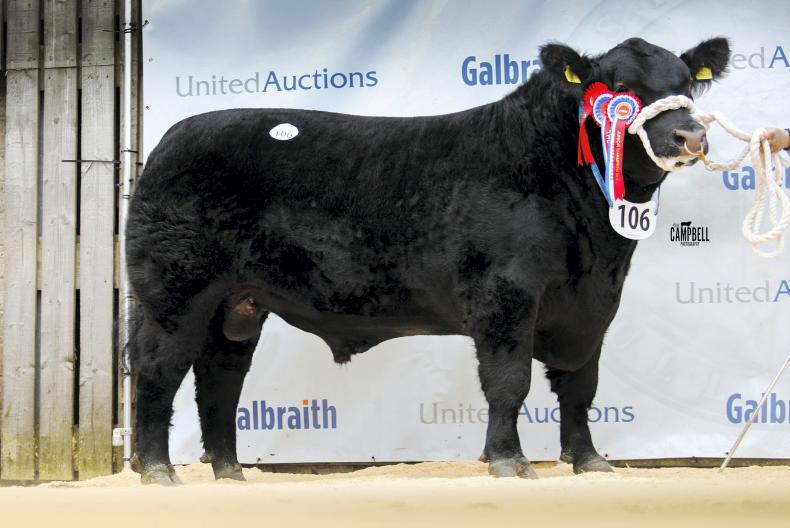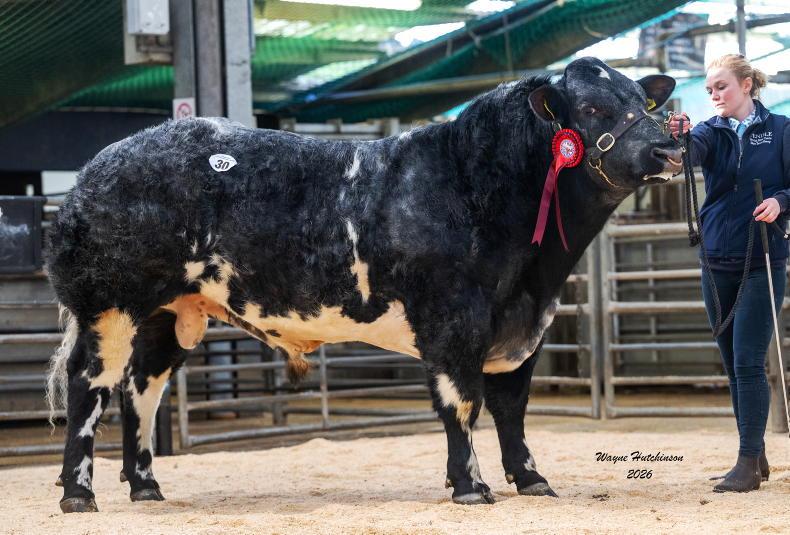This week, UK prime minister Rishi Sunak hosted a summit in Downing Street bringing all the links of the food supply chain together.
The working title for the event - 'Farm to fork' - will ring a bell with Irish and EU farmers, as that is the roadmap for future agricultural production in the EU for the remainder of this decade and beyond.
The UK version is intended to address the issues of the moment, the most pressing of which is food prices from a political viewpoint.
Currently in the UK, food price inflation is running at just under 20%, double overall inflation. In addition to this are frequent empty supermarket shelves for fresh vegetables and a plea from British vegetable and fruit growers about not enough labour to harvest crops.
First step
If the first step in addressing a problem is recognising that it exists, then the summit can be judged a success, at least at that level.
However, that is a very modest success and there are concerns that problems in the British supply chain could get worse before they get better.
The summer fruit and vegetable harvesting season is just weeks away and, at a separate event this week, home secretary Suella Braverman declared that there was no good reason why the UK couldn’t train its own fruit pickers and lorry drivers.
If supplies are limited, continental growers and traders will be less inclined to supply the UK
Manual fruit and vegetable harvesting in Britain, concentrated in the east and southeast of England, has long relied on migrant labour.
In previous decades, Irish students were often employed, but, in more recent times, the labour has come from eastern Europe.
This was no problem when the UK was in the single market, but now that it has left, these people are no longer eligible to enter the UK without visas and growers are left without labour.
Previously, the UK government launched a 'pick for Britain' campaign to attract UK workers, but this flopped and was abandoned.
Vegetable supply
Vegetable production across Europe has been disrupted for much of the past year due to a combination of droughts and frosts.
This has the potential for supply disruption, but the situation is made worse for the UK by the Brexit barrier that is about to get higher when the UK introduces full border controls in October this year.
If supplies are limited, continental growers and traders will be less inclined to supply the UK, with the extra bureaucracy that doesn’t exist for supplying EU customers.
For the UK market to be attractive to EU growers, they need to have big crops and abundant supplies that leaves them having to chase markets and go the extra mile to supply them.
Trade deals
Trade deals is an area where farmers are exposed. The UK opens up to tariff-free dairy, beef and lamb from Australia and New Zealand from the end of this month.
Both countries are much cheaper producers than the UK and supermarkets and consumers will shortly have access to this product.
Given the distance, there are logistics issues, but a quick win on food price inflation for the government would be accessing cheaper supply lines from outside the EU and this could be demonstrated as a Brexit benefit from a consumer perspective, though not from a farmers' perspective.
UK supermarkets are strong in professing loyalty to British suppliers, but if they are being pressed on the need to reduce food prices, they may well move and present it as giving consumers a choice on how they spend the family food budget.
Summits like the one in Downing Street this week are supported by huge PR campaigns and, given the fact that food price inflation affects every citizen, they will get picked up by the national media.
A cynical observation would be that they are a great way of giving an impression that political, industry and farming leaders are putting their heads together to come up with a solution.
The reality is much more mundane - all interested parties around the table will be fighting their own corner.
Supermarkets will look for cheaper supply lines, so any price falls don’t affect their margins.
Growers want labour to get their crops harvested and processors also want labour to maintain output as cheaply as possible.
Farmers are left with fine words and sentiment about how important they are, but, as is usually the case, they are the lowest priority.
Read more
Brexit detail still a problem
UK-EU relations at most-stable point since referendum
Minister urges agri-food exporters to prepare for new UK import requirements
This week, UK prime minister Rishi Sunak hosted a summit in Downing Street bringing all the links of the food supply chain together.
The working title for the event - 'Farm to fork' - will ring a bell with Irish and EU farmers, as that is the roadmap for future agricultural production in the EU for the remainder of this decade and beyond.
The UK version is intended to address the issues of the moment, the most pressing of which is food prices from a political viewpoint.
Currently in the UK, food price inflation is running at just under 20%, double overall inflation. In addition to this are frequent empty supermarket shelves for fresh vegetables and a plea from British vegetable and fruit growers about not enough labour to harvest crops.
First step
If the first step in addressing a problem is recognising that it exists, then the summit can be judged a success, at least at that level.
However, that is a very modest success and there are concerns that problems in the British supply chain could get worse before they get better.
The summer fruit and vegetable harvesting season is just weeks away and, at a separate event this week, home secretary Suella Braverman declared that there was no good reason why the UK couldn’t train its own fruit pickers and lorry drivers.
If supplies are limited, continental growers and traders will be less inclined to supply the UK
Manual fruit and vegetable harvesting in Britain, concentrated in the east and southeast of England, has long relied on migrant labour.
In previous decades, Irish students were often employed, but, in more recent times, the labour has come from eastern Europe.
This was no problem when the UK was in the single market, but now that it has left, these people are no longer eligible to enter the UK without visas and growers are left without labour.
Previously, the UK government launched a 'pick for Britain' campaign to attract UK workers, but this flopped and was abandoned.
Vegetable supply
Vegetable production across Europe has been disrupted for much of the past year due to a combination of droughts and frosts.
This has the potential for supply disruption, but the situation is made worse for the UK by the Brexit barrier that is about to get higher when the UK introduces full border controls in October this year.
If supplies are limited, continental growers and traders will be less inclined to supply the UK, with the extra bureaucracy that doesn’t exist for supplying EU customers.
For the UK market to be attractive to EU growers, they need to have big crops and abundant supplies that leaves them having to chase markets and go the extra mile to supply them.
Trade deals
Trade deals is an area where farmers are exposed. The UK opens up to tariff-free dairy, beef and lamb from Australia and New Zealand from the end of this month.
Both countries are much cheaper producers than the UK and supermarkets and consumers will shortly have access to this product.
Given the distance, there are logistics issues, but a quick win on food price inflation for the government would be accessing cheaper supply lines from outside the EU and this could be demonstrated as a Brexit benefit from a consumer perspective, though not from a farmers' perspective.
UK supermarkets are strong in professing loyalty to British suppliers, but if they are being pressed on the need to reduce food prices, they may well move and present it as giving consumers a choice on how they spend the family food budget.
Summits like the one in Downing Street this week are supported by huge PR campaigns and, given the fact that food price inflation affects every citizen, they will get picked up by the national media.
A cynical observation would be that they are a great way of giving an impression that political, industry and farming leaders are putting their heads together to come up with a solution.
The reality is much more mundane - all interested parties around the table will be fighting their own corner.
Supermarkets will look for cheaper supply lines, so any price falls don’t affect their margins.
Growers want labour to get their crops harvested and processors also want labour to maintain output as cheaply as possible.
Farmers are left with fine words and sentiment about how important they are, but, as is usually the case, they are the lowest priority.
Read more
Brexit detail still a problem
UK-EU relations at most-stable point since referendum
Minister urges agri-food exporters to prepare for new UK import requirements









SHARING OPTIONS